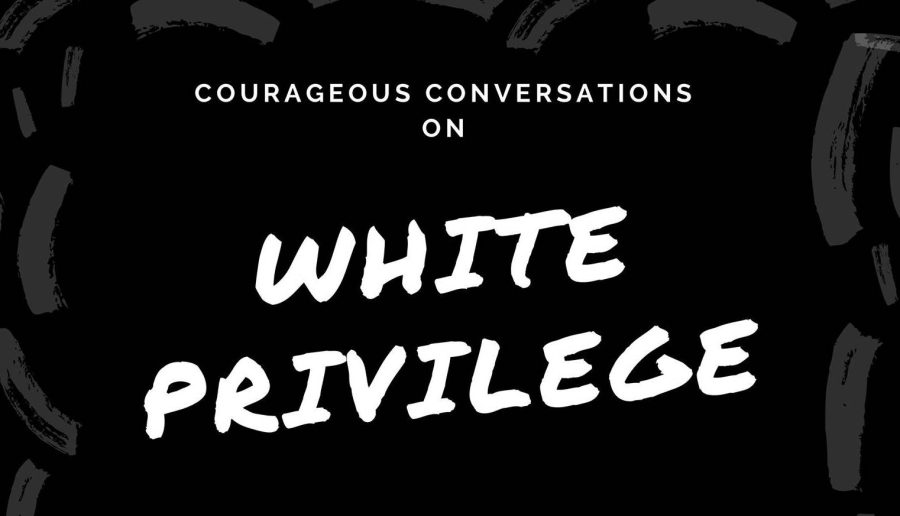Hannah Campbell Gustafson ’09, Associate Chaplain for Christian and Interfaith Life at Carleton, lives five blocks from where Derek Chauvin murdered George Floyd. Residents formed the Powderhorn Park Safety Collective to respond to crime without police involvement. According to Campbell Gustafson, “my husband has been anti-police for a while, but this has been a little bit radicalizing for me.” That’s when she decided to take action at Carleton.
This term, Campbell Gustafson is co-facilitating a discussion group called “Courageous Conversations on White Privilege” for Carleton students and Northfield community members. She is facilitating with Rev. Wendy Vander Hart and Kathy Sandberg, a member of the Northfield First United Church of Christ (UCC). The facilitators are using the UCC’s curriculum on racial justice. In the first class they delved into Robin DiAngelo’s concept of white fragility, and defining “white privilege.” The group meets on Thursdays over Zoom. Most of the participants at the first meeting were Northfield community members, along with six Carleton students.
Everyone in the discussion group is white. Vander Hart said that this curriculum is “the unmasking part,” and that “white people need to do our own work, and I think it’s advantageous for us to do our own work with each other.” Vander Hart said, “I think the dismantling, eradicating phases are more where joining as accomplices, allies, with people of color is really powerful. But we don’t need, I think, we risk hurting people of color when we’re doing our own work, and there’s enough hurt in the world for people of color that we don’t need to add to that.” But Vander Hart wants to be clear. “It is not a white privilege therapy group,” she said.
Crystal Henslin, an infant educator at Northfield Montessori, and member of the First UCC, found out about the course from her parents, who took it through their church in Bern, 40 minutes south of Northfield.
She’s always recognized the racism of the United States, but she said, “I’ve definitely thought about it a lot more recently, since the George Floyd killing. I got into it pretty deeply on social media after that to the point of just, like needing to take a break and get away from it because I was just so upset with so many people.”
A former family friend is a police officer in Minneapolis. Henslin said, “if I shared something anti-racist my police friend and his wife took it as anti–police.” She said, “we have seen him change so much since becoming a policeman for the Minneapolis Department that we barely know him anymore.”
The discussion group is mostly middle-aged and elderly women who attend First UCC. But that doesn’t bother Thomas Wiggin ’23, one of two men in the group. He said, “I feel more normal talking to people who identify as female and nonbinary.” Perhaps, Wiggin said, the gender disparity is because “there’s not a lot of emotional work required of men socially. They’re meant to essentially produce value, or capital.”
Wiggin does wish there were more Carleton students involved in the discussion. He said, “I’m pretty used to the conversation, so it doesn’t seem like there’s that much new, which is why I would want the younger voices which would tend to be more radical.”
Wiggin feels comfortable talking about racism because he said, “I just read a lot online and when people are sharing things on their personal media they can be a lot more vulnerable because they’re not saying it to anyone they know. They’re not worried about making an impression or somehow changing a social dynamic, and I think that’s what allows me to be comfortable. I’ve seen what people talk about when they’re vulnerable from various positions.”
Moved to action in the wake of national protests, Vander Hart, of the Northfield First United Church of Christ, or “Pastor Wendy” as her congregants refer to her, reached out to local faith leaders through the Northfield Area Interfaith Association (NAIA). She said, “we came together with a racial justice pledge, that we wanted our faith communities to consider.” The pledge’s stated purpose is “to encourage faith communities and others within Northfield, MN and beyond to unmask, dismantle, and eradicate racism.” Campbell Gustafson was a member of the group which created the pledge.
Vander Hart is a trained racial justice facilitator from the Southern New England Conference of the UCC. She has always had an interest in racial justice. “I’d like to say that I grew up with a vision of the way the world could be,” she said. Her father was the pastor of a predominantly African-American church in the Lower East Side of Manhattan. “The church building was set in an Orthodox Jewish neighborhood, there was a growing Latino population in that neighborhood, the congregation started out as white but then when the neighborhood changed it became all Black, we were one of three white families, so I go back to some of my beginnings desiring to be the diverse creation that God has created.”
Beyond unmasking racism and white privilege, Campbell Gustafson said, “I hope students come away with more tools or ideas about how to talk to their friends about this as well.”
Henslin and Wiggin hope the same for themselves. “I’d like to be able to have talking points to go off of when I am having a conversation with someone that doesn’t totally agree on the fact that they have white privilege,” Henslin said. “I’m a teacher. That’s just what I want to do.”
Wiggin wants to know, “how do we engage people who don’t have the previous exposure? How do you make them open to asking the questions that can lead to really uncomfortable answers but that also will promote the kind of solutions and the sort of self-reflection that we actually need to make any lasting change?” By attending the Courageous Conversations this term, he hopes to find answers.












